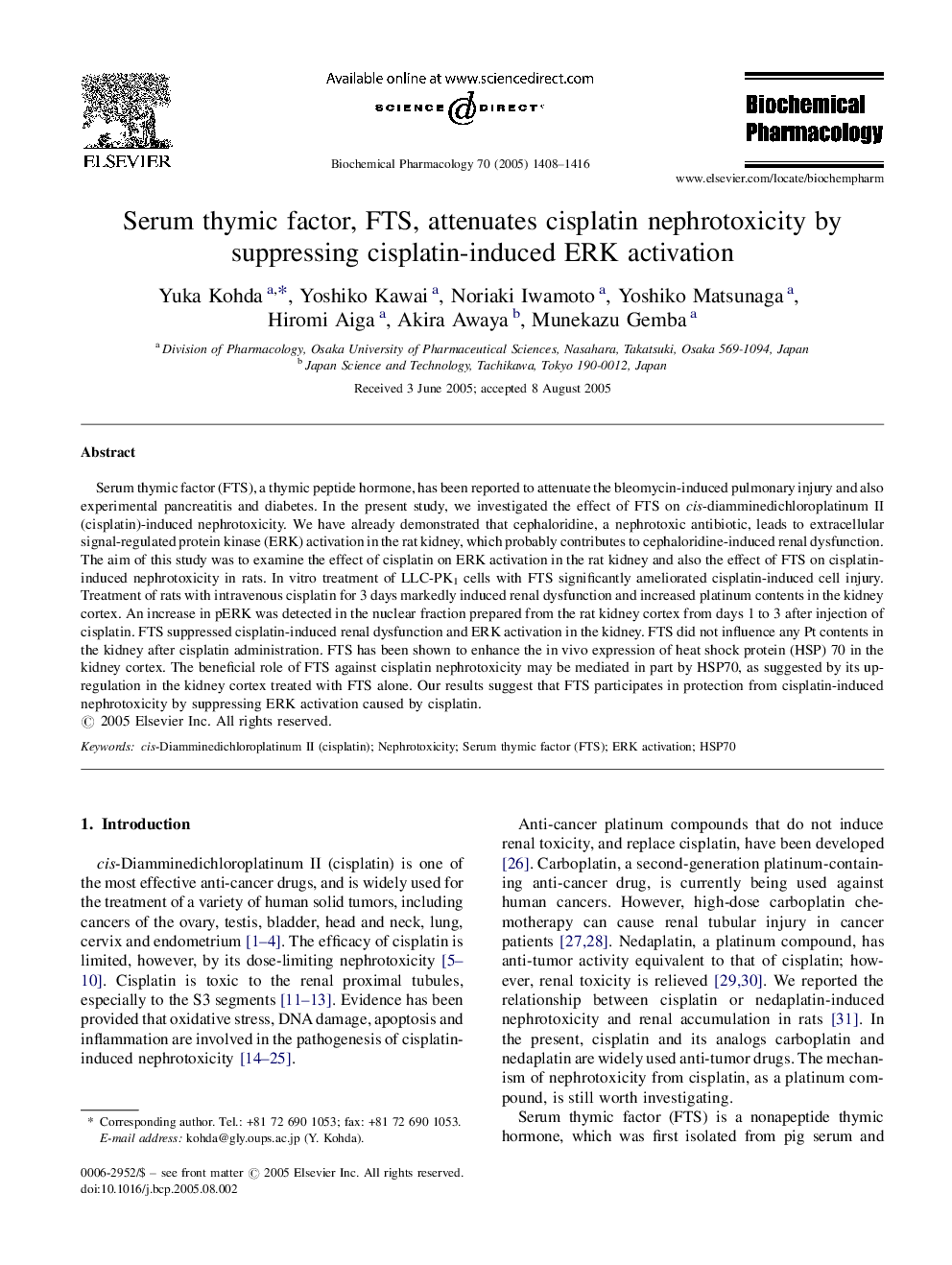| Article ID | Journal | Published Year | Pages | File Type |
|---|---|---|---|---|
| 9001640 | Biochemical Pharmacology | 2005 | 9 Pages |
Abstract
Serum thymic factor (FTS), a thymic peptide hormone, has been reported to attenuate the bleomycin-induced pulmonary injury and also experimental pancreatitis and diabetes. In the present study, we investigated the effect of FTS on cis-diamminedichloroplatinum II (cisplatin)-induced nephrotoxicity. We have already demonstrated that cephaloridine, a nephrotoxic antibiotic, leads to extracellular signal-regulated protein kinase (ERK) activation in the rat kidney, which probably contributes to cephaloridine-induced renal dysfunction. The aim of this study was to examine the effect of cisplatin on ERK activation in the rat kidney and also the effect of FTS on cisplatin-induced nephrotoxicity in rats. In vitro treatment of LLC-PK1 cells with FTS significantly ameliorated cisplatin-induced cell injury. Treatment of rats with intravenous cisplatin for 3 days markedly induced renal dysfunction and increased platinum contents in the kidney cortex. An increase in pERK was detected in the nuclear fraction prepared from the rat kidney cortex from days 1 to 3 after injection of cisplatin. FTS suppressed cisplatin-induced renal dysfunction and ERK activation in the kidney. FTS did not influence any Pt contents in the kidney after cisplatin administration. FTS has been shown to enhance the in vivo expression of heat shock protein (HSP) 70 in the kidney cortex. The beneficial role of FTS against cisplatin nephrotoxicity may be mediated in part by HSP70, as suggested by its up-regulation in the kidney cortex treated with FTS alone. Our results suggest that FTS participates in protection from cisplatin-induced nephrotoxicity by suppressing ERK activation caused by cisplatin.
Keywords
Related Topics
Health Sciences
Pharmacology, Toxicology and Pharmaceutical Science
Pharmacology
Authors
Yuka Kohda, Yoshiko Kawai, Noriaki Iwamoto, Yoshiko Matsunaga, Hiromi Aiga, Akira Awaya, Munekazu Gemba,
